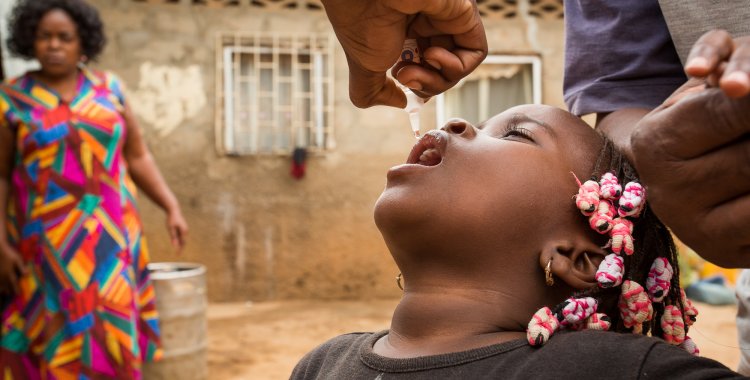The country is also on the list of 10 countries that have the lowest coverage rates, registering just 69 percent.
The data concerns to WHO/UNICEF estimates regarding national child vaccination coverage, released this Monday in Geneva.
With regard to measles, Angola once again stands out in the negative, as it is one of the 10 countries that, as a whole, in 2023 represented 55 percent of children without a measles vaccine and one of those with the lowest coverage rate for that disease (50 percent).
On a global scale, the WHO and UNICEF warn that global childhood immunization levels will stagnate in 2023, and the result is 2.7 million unvaccinated children compared to pre-covid-19 levels in 2019.
In a joint statement, the two UN agencies warn that the result is "a lack of protection that saves lives", and highlight that almost three in four babies live in countries where low vaccination coverage is causing measles outbreaks.
The latest WHO and UNICEF National Immunization Coverage Estimates (WUENIC) – which provide the world's largest and most comprehensive dataset on immunization trends for vaccinations against 14 diseases – underscore the need for continuous efforts to recover and strengthen the system.
"The latest trends show that many countries continue to not vaccinate too many children," said UNICEF Executive Director Catherine Russell, quoted in the statement.
By way of example, the WHO and UNICEF warn that the number of children who received three doses of the diphtheria, tetanus and pertussis (DTP) vaccine in 2023 – a key marker for global immunization coverage – stagnated at 84 percent (108 million).
However, the number of children who did not receive a single dose of the vaccine increased from 13.9 million in 2022 to 14.5 million in 2023.
"While there has been modest progress in some regions, including the African region and low-income countries, the latest estimates highlight the need to accelerate efforts to achieve the Immunization Agenda 2030 (IA2030) targets of 90 percent coverage and no more than 6.5 million children with 'zero dose' worldwide by 2030", defend the two UN agencies.







